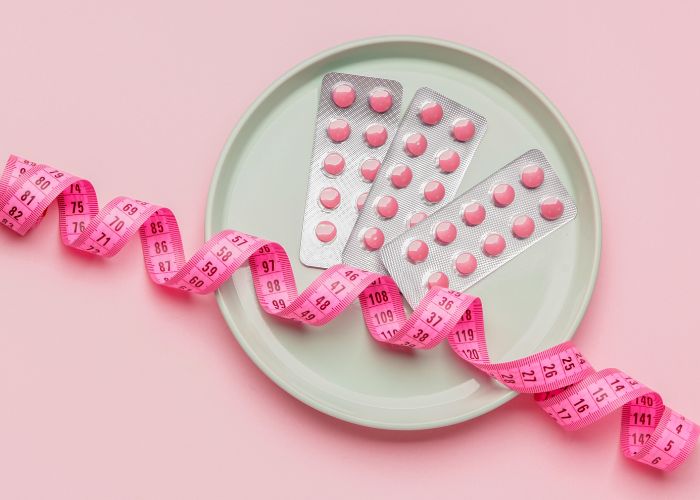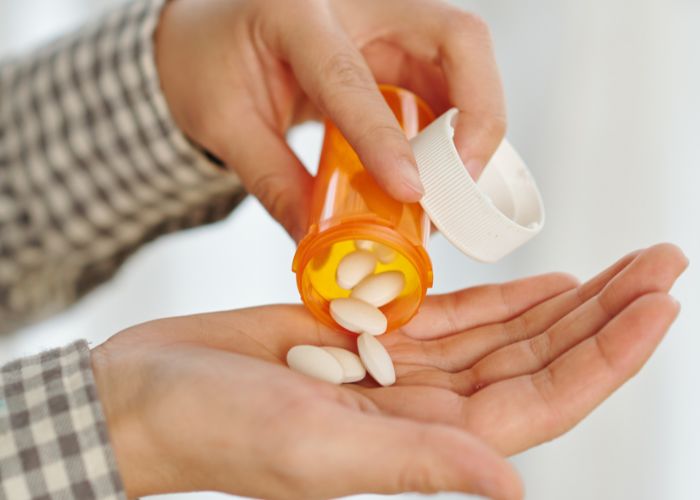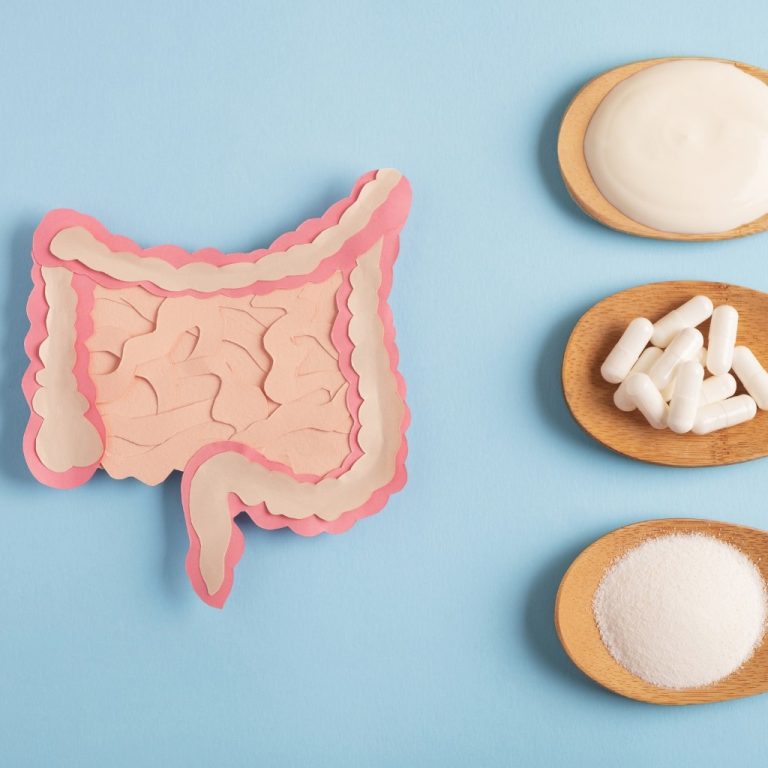
What are antibiotics?
Antibiotics are a type of medication that act against bacteria and are therefore used to treat bacterial infections. In addition to dangerous pathogens, these drugs also eliminate the body’s own beneficial intestinal bacteria. Undesirable side effects such as abdominal pain, diarrhoea and fungal infections (the latter are particularly common in women) can occur as a result. In addition, overuse of these drugs increases the risk of antibiotic resistance. This means that the antibiotics lose their effectiveness against certain bacteria and can therefore no longer help with fighting infections.
Do antibiotics cause weight gain?
A healthy intestinal flora is not only relevant for health per se but also appears to influence body weight. The balance of the gut microbiome, however, can be severely disrupted by taking antibiotics. A group of researchers found that even six months after antibiotic administration, nine common bacterial species were missing from the intestinal flora. This microbial change can among other things lead to weight gain. The studies showed that test subjects who received antibiotics gained weight more frequently than those who were not treated. A similar phenomenon was observed in children. Children who received antibiotic treatment within the first 6 months of life gained more weight than those who did not receive treatment.
However, it appears that taking antibiotics does not only affect the body’s own intestinal microbiome. A study of more than 400 mother and child pairs showed that taking antibiotics before, during and immediately after birth meant that these children were more likely to become overweight later on.

How does the gut flora affect weight?
Among the large variety of species that colonise the human gut flora are bacteria from the Firmicutes and Bacteroidetes groups. While the Firmicutes can obtain a lot of energy from indigestible fibre, the Bacteroidetes encapsulate excess carbohydrates directly in the intestine so that they can be transported out of the body with the stool. Studies show that there are more Firmicutes in the intestines of overweight people than in those of normal weight. The ratio of these two groups of bacteria is therefore directly correlated to a person’s body weight.
After taking antibiotics, a dysbiosis (imbalance) of the intestinal flora can occur, which can also shift this ratio in favour of the Firmicutes. If this is the case, weight gain or at least no weight loss may occur despite a strict diet and exercise.
Maintain gut health on antibiotics
For certain infections, treatment with antibiotics is the only option and residual exposure (e.g. via contaminated food, etc.) cannot always be completely avoided. To long-term damage of the intestinal flora, it can therefore be useful to support your gut bacteria with probiotics. Studies show that the use of medically relevant probiotics is associated with weight loss and can prevent undesirable side effects of antibiotics on the intestinal flora.



























